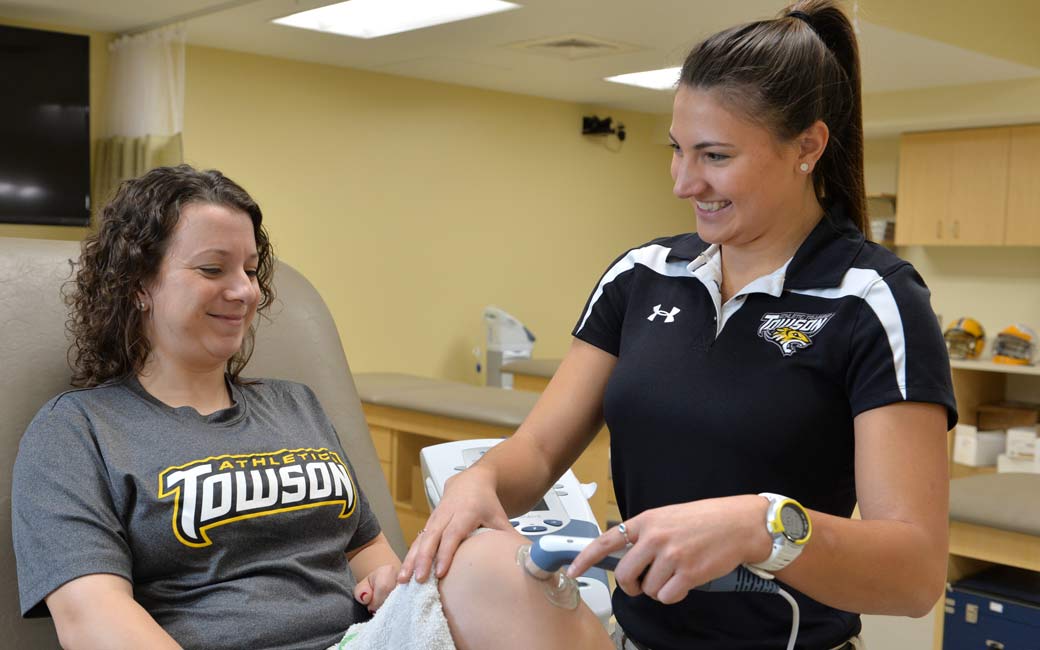Julie Kuhlman
As a former gymnast and soccer player, Julie Kuhlman knows the debilitating impact injuries can have on an athletes career. Even though she is now more on the sidelines the athletic training major finds that she is just as essential a team member.

Julie Kuhlman spends a lot of time on the sidelines, yet she plays a starring role on a number of Towson sports teams.
“The basic role of the athletic trainer is injury prevention, assessment, management and rehabilitation,” explains Kuhlman, who has been an athletic training student with Towson’s women’s basketball and track and field teams and men’s football teams as well as for all fall sports at a nearby high school. She has also worked with Johns Hopkins University’s football team and Goucher College’s winter and spring sports.
“Towson has given me the opportunity to work in wide variety of settings with different types of athletes,” says Kuhlman. As president of Towson’s Athletic Training Club and a student senator for the Mid-Atlantic Athletic Trainers’ Association, Kuhlman is helping to create a sense of community on campus and a presence off campus. “At the Baltimore Running Festival, we helped staff the medical tent and satellite locations around the course and assisted in the medical care of participants during and after the race,” she explains.
She shares how the small number of students in the program translates to one big support group. “The work load and time commitment can get intense, but we are a tight knit group of students and are willing to help each other out,” attests Kuhlman. “We also have the opportunity to learn from one another’s experiences along the way.”
“ The basic role of the athletic trainer is injury prevention, assessment, management and rehabilitation. ”
As a former gymnast and soccer player, Kuhlman recalls when she was seriously injured with an elbow dislocation and concurrent wrist fracture. “The hardest part of dealing with my injury was returning to being a fully functional gymnast,” she says. Athletic trainers not only return athletes to being functional in daily living activities, but to full functionality in their sport. “As an athletic training student, I have learned how important it is to establish strong, professional relationships with your athletes because you could be doing anything from wound care to potentially saving their lives.”